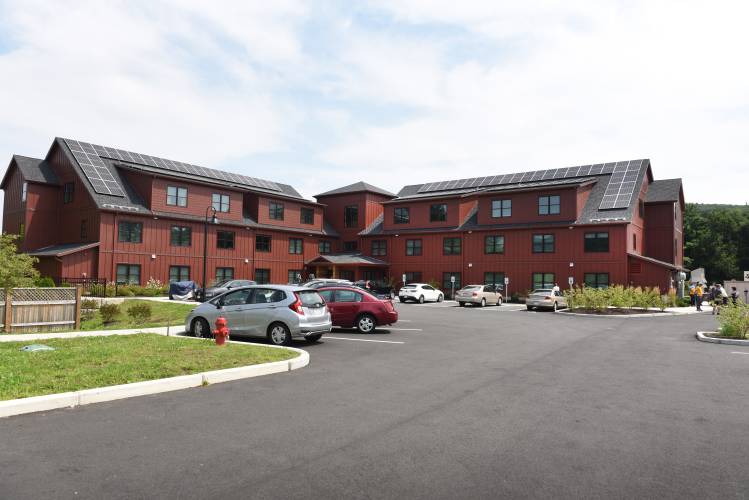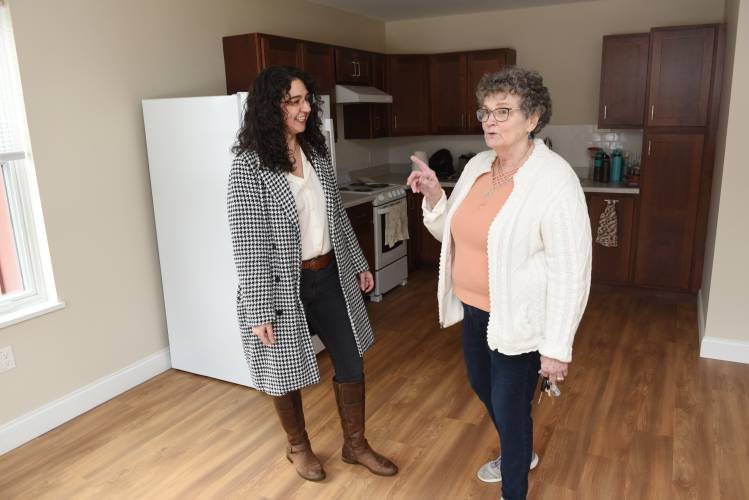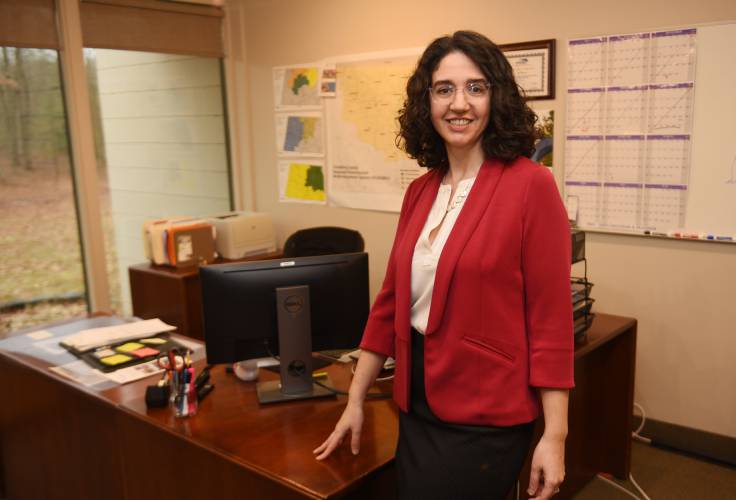Screening service may ease public housing woes for Franklin County
| Published: 09-29-2023 5:57 PM |
With the implementation of statewide centralized screening, the Franklin County Regional Housing & Redevelopment Authority hopes to see improvement in the filling of its public housing units.
This service, which is being provided by the Lawrence-based ASG, began on Sept. 27, and will go through each application for housing to make determinations for priority and preference. Gina Govoni, executive director of the Franklin County Regional Housing & Redevelopment Authority, hopes the screening process will alleviate some of the issues they’ve faced amid recent changes to the application programs. A primary issue is finding applicants who actually want to live in Franklin County.
“Optimistically, in a year from now, we will be in a much better place,” she said.
Back in 2019, the state began mandating that applicants for affordable housing fill out a central online application called Common Housing Application for Massachusetts Programs (CHAMP).
The Franklin County Regional Housing & Redevelopment Authority began using CHAMP in 2020 and quickly saw a problem emerge. The waitlist for the 150 units managed by the authority (which excludes many of the large developments in Greenfield) ballooned from about 200 households to nearly 6,800, Govoni explained.
The problem? Many applicants were from eastern Massachusetts and did not relish the idea of moving out west. These applicants, who are often desperate for housing, apply to all public housing units in the state. Those with prior housing — who are mostly from the urban population centers in the east — float to the top of the list.
Govoni said that before the CHAMP system, 40% of the applicants for affordable housing at a Bernardston development were from Franklin County. This number is based on a survey of 705 applicants. After CHAMP, of the 705 people surveyed, only 10 applications, or 2%, came from Franklin County.
“We end up with people not applying to places they necessarily want to live but applying to a lot of different places,” Govoni explained.
Article continues after...
Yesterday's Most Read Articles
When a unit opens, the housing authority goes through the list asking people to move in. When applicants find out the unit is not near where they are from, they decline the offer. One unit in a rural region of the county was open for nearly 300 days; it was recently filled by a family from Worcester who had never been west of the city before.
Many of the people at the top of Franklin County housing authority’s list are in the fourth priority housing category, defined as “homeless due to no-fault reason, severe medical circumstances or abuse.” This category of need for housing was an option on the application that people were able to check off without any documented proof for the past four years.
Govoni said the housing authority attempts to welcome new families who move to this rural region when offered housing, but the barriers are significant. Because the housing is far away from many families’ support services, it becomes an uphill battle to acclimate.
“What we are seeing is that the statewide and local services are not making the right connections to get the services people need,” Govoni said, adding that people have lacked language-based services as well as other essential help to move to this region.
Changes were also made to the Massachusetts Rental Voucher Program. This functions similarly to the Section 8 voucher program, where affordable housing-eligible applicants get a voucher to pay for housing in the private market; these vouchers act as rental subsidies.
The waitlist for the Massachusetts Rental Voucher Program was closed for the past seven years, but with the changes on Wednesday, it is now open and a centralized screening element has been added to the process.
Govoni said this update may not cause large changes in Franklin County, as the housing authority has fewer than 20 mobile housing vouchers available. She expects people in urban population centers who have top housing priority to be the first to be offered these vouchers. They are then likely to be brought to the urban centers of the state, where Franklin County will not see the benefits.
“My fear is mobile vouchers will be absorbed in population centers. We will no longer have a program for MRVP people here,” Govoni said. “People in Boston can get one for our agency and they can transfer it back to any housing authority in eastern Mass.”
Because the waitlist has been closed for so long, Govoni said, she thinks there are few Franklin County residents who currently use the Massachusetts Rental Voucher Program.
Much alarm around public housing has come from a recent WBUR report that found 2,300 state-funded apartments are sitting empty. Govoni explained the issues brought up in this story are not affecting the properties overseen by the Franklin County Regional Housing & Redevelopment Authority, where only seven apartments remain vacant with three intentionally kept offline to move people during rehabilitation projects in their own apartments.
The Franklin Regional Council of Governments (FRCOG) is conducting a study about housing needs in the area that is expected to come out by the end of the year. In a recent report, Livability Program Manager and Planning Coordinator Megan Rhodes explained the county has a shortage of 3,000 units and more than half of the renters are paying more than 30% of their incomes in rent.
Govoni explained it is difficult to develop new housing in rural western Massachusetts because the state is largely urban.
“When we apply for funds to build new housing, we are competing with much larger, denser projects that have scale that can take on project-wide costs,” Govoni said. “It is hard to absorb the cost of infrastructure design into smaller developments.”
She used the new 33-apartment Sanderson Place housing complex in Sunderland as an example; this project is at the scale Franklin County needs, but contains far fewer units than larger housing developments in urban areas.
“There is a perception that there is a lower cost and availability of land here and it is just not a problem being a rural county in a largely urban state,” Govoni said. “We face urban bias. … It is just as difficult to develop housing here, and the wage stagnation and lack of available employment options have led to a housing cost burden that is even more significant.”
Bella Levavi can be reached at 413-930-4579 or blevavi@recorder.com.




 Wear Orange organizers prepare display to remember gun violence victims
Wear Orange organizers prepare display to remember gun violence victims Deerfield candidates, Whately incumbent discuss issues with voters at South County Senior Center
Deerfield candidates, Whately incumbent discuss issues with voters at South County Senior Center Fogbuster Coffee Works, formerly Pierce Brothers, celebrating 30 years in business
Fogbuster Coffee Works, formerly Pierce Brothers, celebrating 30 years in business 1989 homicide victim found in Warwick ID’d through genetic testing, but some mysteries remain
1989 homicide victim found in Warwick ID’d through genetic testing, but some mysteries remain
